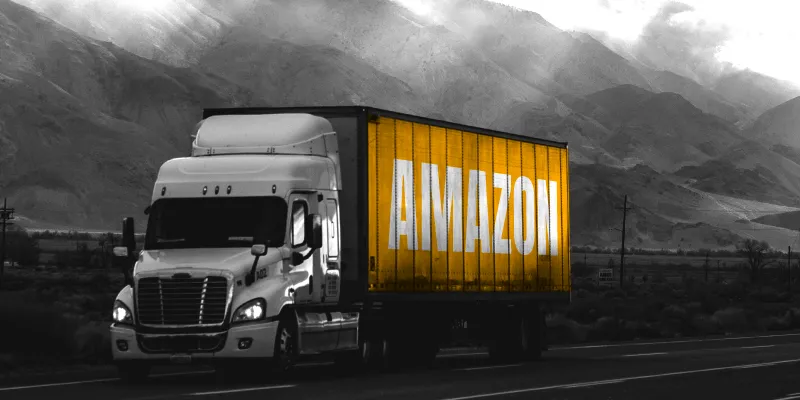Government rule may knock off the wind under Amazon India's Cloudtail
Cloudtail allegedly fulfils more than 25 percent of all Amazon India orders, and calculations show it makes up around 42.19 percent of the group’s revenues.
The Ministry of Commerce and Industry on Wednesday put out a notification restricting ecommerce companies from selling products of companies they hold a stake in. Also, according to government regulations, ecommerce companies that have foreign direct investment cannot source more than 25 percent of their sales from a single company.
"It is the step in the right direction because it creates a level playing field for all sellers on the platform rather than just a few brands and sellers who were using online platforms to stay ahead with discounting," says Arvind Mediratta, MD of Metro Cash and Carry India.
The government has set February 1 as the date for ecommerce players to comply with the regulations and among those that will be hit is Cloudtail.
Cloudtail is owned by Prione, which in turn is owned by Amazon India and Catamaran Ventures. Cloudtail allegedly sources and fulfils more than 25 percent of all orders on Amazon India.

Here is where the problem starts – for the year that ended March 31, 2018, Prione’s revenue stood at a little over Rs 7,247 crore, and a majority of its business comes from Cloudtail. For the same period, Amazon India’s revenue from the marketplace model stood at Rs 4,928 crore, and from the wholesale business Rs 12,245 crore, according to data from filings with the Registrar of Companies.
The government, thus, has a clear case to clamp down on Amazon India as a back of the envelope calculation shows Cloudtail makes up around 42.19 percent of the group’s revenues.
There is more here. DIPP rules say that any ecommerce company funded by FDI cannot own a fulfilment partner. There is some ambiguity here because Amazon India is not a majority shareholder in Prione - which owns Cloudtail - and holds only 49 percent in it while 51 percent is held by Catamaran Ventures.
While these rules have been in place for four years, it is only now that the government has woken up to enforce it.
"Ambush marketing will stop and the new rules will create a cushion for physical retailers and wholesalers who were being beaten by Amazon," says Arjun K Perikal, Partner at JSA a law firm.
What now for Cloudtail?
Large companies selling only through Cloudtail are likely to take an immediate hit. Also, verticals like Amazon Pantry – Amazon India’s aggressive bet in the Indian grocery space dominated by players like Bigbasket, Future Retail and Reliance Retail – will see an impact.
Interestingly, only Amazon India is likely to face the heat from the government notification. Competitor Flipkart has steadily been reducing its dependency on its primary fulfilment partner WS Retail Services, and has multiple fulfilment partners but none of whom account for more than 25 percent of sales.
Sources told YourStory that Cloudtail owns inventory worth over Rs 1,000 crore across 34 Amazon fulfilment centres. To comply with the government rule, Amazon India will now have to rapidly build a network of new distributors.

“This is a success for smaller sellers who were losing out on the platform to big brands such as Unilever and P&G on Amazon India,” says the spokesperson for an upcoming brand that uses Amazon India as a distribution channel. Sources say Amazon will most likely seek an extension to comply with the rule, and will eventually have to create multiple fulfilment partners.
The ecommerce business has primarily two models – the vendor model and the marketplace model. Both Amazon India and Flipkart are marketplace models, where a company directly supplies a product to the consumer and the marketplace takes a service charge for offering the platform. However, they also operate with a vendor model, where a product is picked up by an entity like Cloudtail and delivery to the customer is fulfilled by it.
Trouble in ecommerce paradise
So is Cloudtail, and Amazon India, in trouble? The answer is yes.
To set its house in order, Amazon India may have to take over Cloudtail’s inventory. It may also have to exit its holding in Prione.
Also, some companies selling their products on Amazon India will have to take over the distribution and fulfil orders themselves, at least until Amazon India identifies new fulfilment partners. This means new business for logistics companies such as DHL-Bluedart, Aramex and others.
Sources also say Amazon India may register multiple fulfilment companies, but still, operate under Cloudtail’s mandate.
“I am not affected by these rules as I am a third party vendor. I invoice and fulfil myself. I also work with Cloudtail and I am not exposed to Cloudtail, although I still have Rs 4 crore inventory with them. However, I fear for large companies who have not invested in their own fulfilling capabilities and are completely dependent on Cloudtail,” says a beauty products brand owner that sells on Amazon India.







